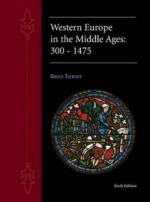|
This section contains 2,695 words (approx. 9 pages at 300 words per page) |

|
Defining Piety. Piety is the outward expression of that form of belief usually called spirituality. The medieval Church recognized that a person's actions were relatively easy to ascertain and, thus, placed great emphasis on good deeds. At the same time it recognized the difficulty in supervising a person's spirituality, and it focused much of its Church policy on developing correct piety, hoping that this outward expression would correlate to an equally correct spirituality. The piety of the medieval Europeans also reflected the synthetic elements in medieval Christianity. By the ninth century most European peoples had been nominally Christian for centuries; a few, especially the Scandinavians, were converted only around the year 1000. Little evidence has survived about the extent of the religious instruction that most laypeople received, but it is known that many old pagan superstitions survived. Furthermore, the elements of Christianity that had most...
|
This section contains 2,695 words (approx. 9 pages at 300 words per page) |

|




